The Negaunee Institute places much value on engaging scientists, practitioners, and community members in taking action to address and work toward solutions for the many threats that we see. Community Science efforts include Budburst and Plants of Concern, which engage non-scientists to make observations and collect important data that are needed to document things like flowering time, populations of plant species that are under threat, etc. Seed banking is essential for building a collection of seeds of native plant species that can be used in restoration projects and in research. Our advocacy efforts are focused on making sure that governmental agencies, elected officials, and other decision makers are aware of the threats to plants and native habitats.

sCORE: the Synthesis Center for Conservation and Restoration
The Synthesis Center for Conservation and Restoration brings diverse perspectives together to enable analysis, synthesis, and collaboration aimed at addressing key needs in plant conservation and restoration science, practice, and policy. We are located in the Negaunee Institute for Plant Conservation Science and Action at the Chicago Botanic Garden.
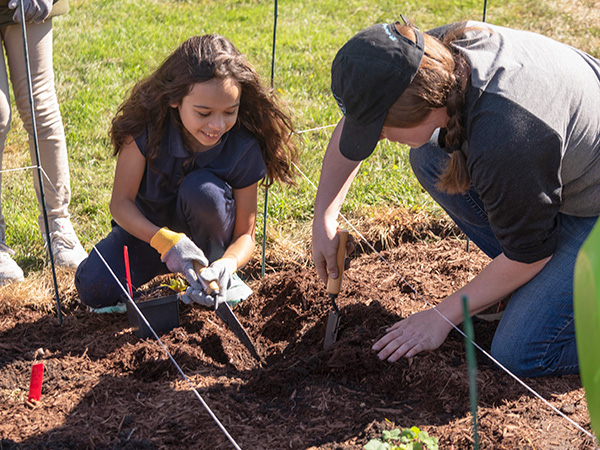
Budburst
The Garden is headquarters for Budburst, which engages volunteers in all 50 states to track climate change impacts on the timing of leafing, flowering, and fruiting of plants. Plants of Concern, the Garden’s model community science program, engages volunteers in tracking different plant species at locations in the Chicago region.
Learn more.
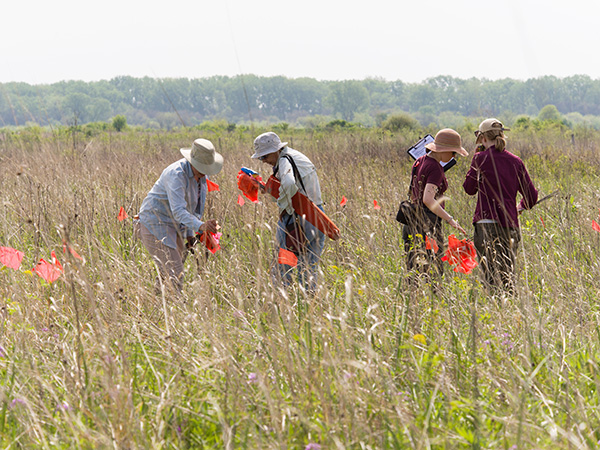
Plants of Concern
Although the Chicago region is highly urbanized, it contains remnant natural areas that support rare species. Land managers use rare species data in management planning, but they are often unable to collect this data on a scale at which it is needed. Plants of Concern (POC) was founded in 2000 to address this need. Regional assessments and local analyses that can provide feedback about the status of rare species are critically needed.
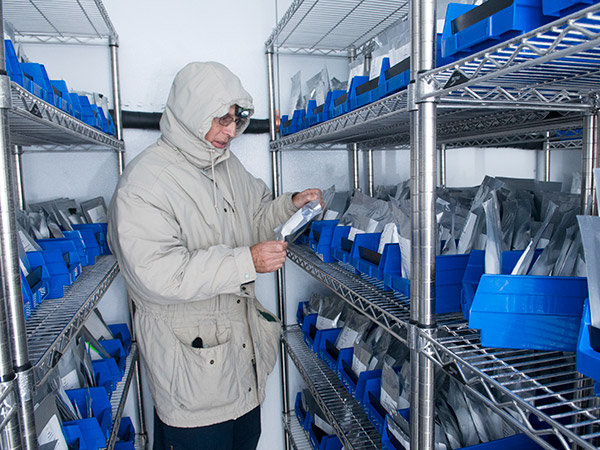
Seed Banking
Millions of seeds sit frozen in a vault at the Chicago Botanic Garden, waiting to prevent an extinction, support habitat restoration efforts, or contribute to scientific research. The Garden’s Dixon National Tallgrass Prairie Seed Bank provides long-term storage for more than 4,200 seed collections from 1,800 species of plants native to the tallgrass prairie, woodland, and wetland ecosystems of the Midwest and beyond.
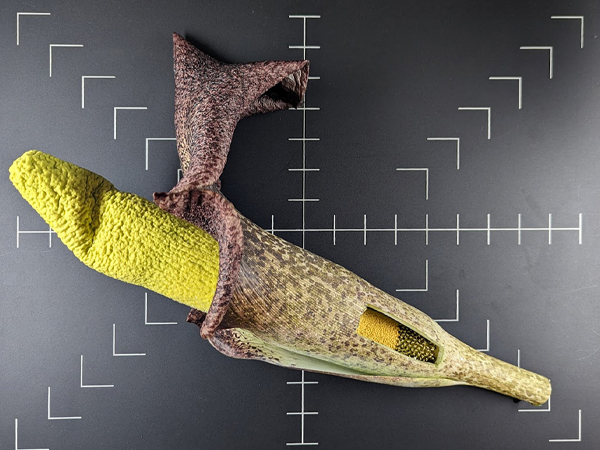
Pollen Bank
The Chicago Botanic Garden’s Pollen Bank is a critical tool for advancing our work to prevent plant extinctions, reintroduce species into the wild, and support habitat restoration. Established in 2023, the Pollen Bank focuses on conserving oaks and orchids of the Great Lakes region and supporting the recovery of rare and endangered plants around the world.
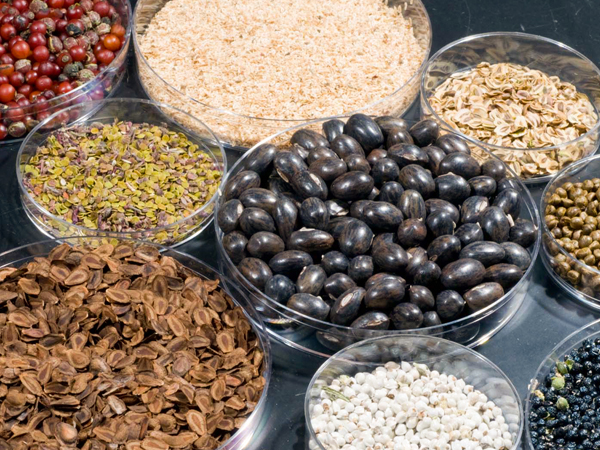
Meeting the Need for Native Seed
The Chicago Botanic Garden is helping increase the supply of native seed at the local, regional, and national levels—supporting healthy landscapes where pollinators, wildlife, and people thrive.

